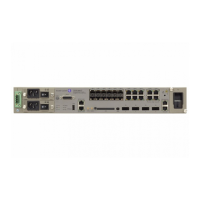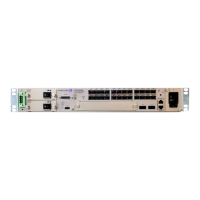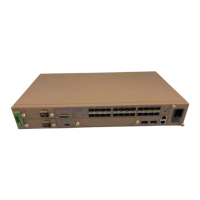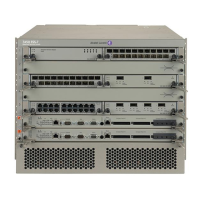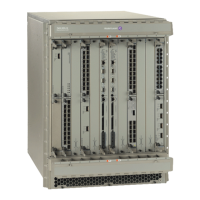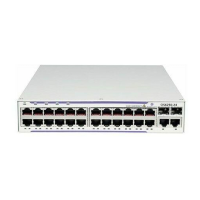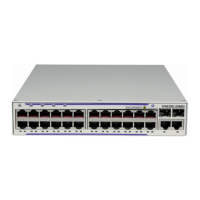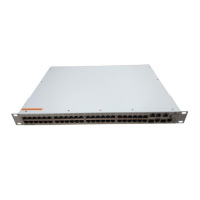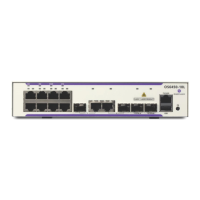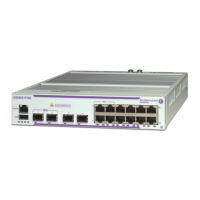The File System
Page 86 7210 SAS D, E, K OS Basic System Configuration Guide
• 7210 SAS also autodetects the device type when any of the supported devices are
connected to the USB interface. Only approved USB mass storage device and optical clip-
on devices can be plugged in to the USB port and are recognized as valid devices. All
other unsupported devices will result in an error log being printed.
• It is highly recommended to use the “shutdown” command before removing the USB
storage device.
URLs
The arguments for the 7210 SAS OS file commands are modeled after standard universal resource
locator (URL). A URL refers to a file (a file-url) or a directory (a directory-url).
7210 SAS OS supports operations on both the local file system and on remote files. For the
purposes of categorizing the applicability of commands to local and remote file operations, URLs
are divided into three types of URLs: local, ftp and tftp. The syntax for each of the URL types are
listed in Table 12.
Table 12: URL types and Syntax
The system accepts either forward slash (“/”) or backslash (“\”) characters to delimit directory and/
or filenames in URLs. Similarly, the 7210 SAS OS SCP client application can use either slash or
backslash characters, but not all SCP clients treat backslash characters as equivalent to slash
characters. In particular, UNIX systems will often times interpret the backslash character as an
“escape” character. This can cause problems when using an external SCP client application to send
URL Type Syntax Notes
local-url [cflash-id:\]path
[usb-flash-id:\]path
cflash-id is the compact flash device name.
Values: cf1:
usb-flash-id is the USB device name.
Values: uf1:
ftp-url ftp://[username[:password]@]host/path An absolute ftp path from the root of the remote
file system.
username is the ftp user name
password is the ftp user password
host is the remote host
path is the path to the directory or file
ftp://[username[:password]@]host/./path A relative ftp path from the user’s home
directory. Note the period and slash (“./”) in this
syntax compared to the absolute path.
tftp-url tftp://host[/path]/filename tftp is only supported for operations on file-urls.
